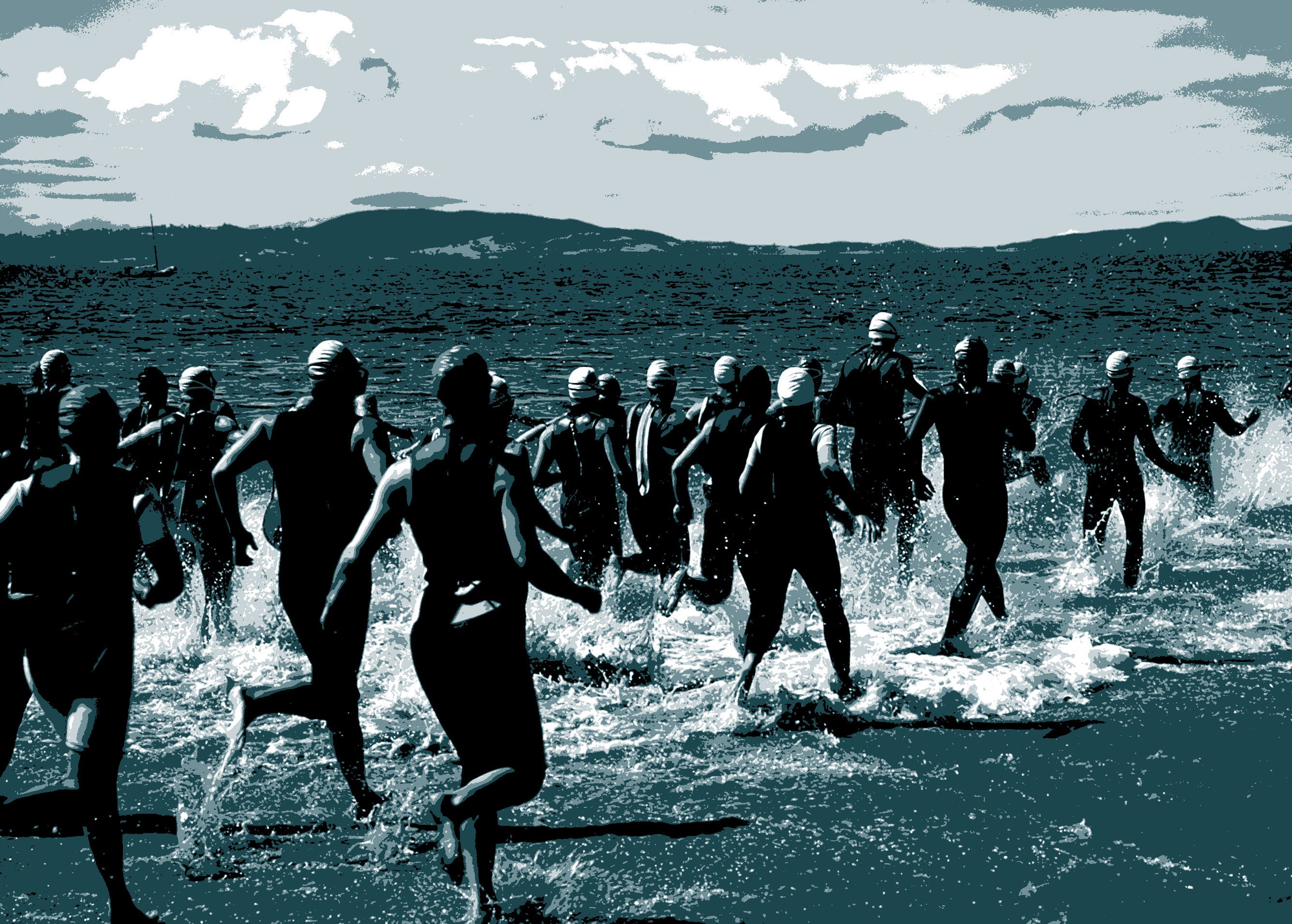Beginner Triathlete Case Study: Struggling With The Swim

Over the next few days we’ll profile four newbie triathletes who’ve faced some of the most common challenges when just getting started in the sport. Let their rookie mistakes—and our expert-sourced solutions—give you a competitive edge, no matter your racing level.
Newbie Case Study #1
Chrissy Laughlin, 35, Carlsbad, Calif.
Needing a little jump-start in the fitness motivation department, the mother of two boys, ages 10 and 20, set her sights on her first triathlon—the all-women SheRox sprint race in San Diego last October—and partnered up with a friend to tackle the training, a departure from her roller derby squad and indoor soccer league.
Biggest challenge: Despite her background as a surfer, the swim training presented the toughest obstacle. “I find that swimming is a discipline where technique really counts, and not having an experienced swimmer to help me with that was difficult,” she says. And while carving out the time to train was difficult, the bigger concern was learning how to train—identifying areas of focus and how to structure the big-picture plan.
Sidestep it: Beginners should keep their training simple and efficient, says coach and former pro Jimmy Riccitello. “Your initial training bouts should be very short: 15-30 minutes for runs and 20-40 minutes for rides,” says Riccitello. “Interval training is not necessary in order to finish a sprint triathlon, but if you’ve been doing some in one or more of the disciplines (spin classes, for example), simply insert that training session where a workout is scheduled.” He’s also a fan of indoor cycling classes: “They’re easy, effective and they take you out of your comfort zone, which will lead to improved fitness and your ultimate goal of finishing your sprint triathlon.”
When it comes to the swim, if you don’t have access to someone with the know-how to guide you through the technical nuances, Riccitello advises athletes to look for a Masters swim team in their area. One-on-one time can be hard to come by at Masters practice, but if you let the coach know that you’re very open to pointers, he or she will usually take time to give you some help with your stroke. “Your fellow swimmers are also often very helpful with regard to technique tips,” he adds.
RELATED: FAQs From Beginner Triathletes